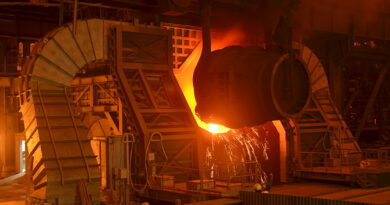Will Covid-19 stop or slow-down hydrogen-powered economy?
In the long-term, climate and environmental challenges remain the major threats to our planet and to humanity as a whole. The economic crisis following the Covid-19 pandemic may cause a significant delay to the adoption and commercial roll-out of clean hydrogen. It may even permanently endanger the capacity of the clean hydrogen sector to take-up its role as the missing link in the energy transition.
The clean hydrogen sector has finally reached the pre-commercialisation phase and is ready to play its essential role in decarbonising our economies. Clean hydrogen is a perfect partner to the ‘Green World’, enabling the realisation of its climate, environmental and economic development goal.
As a result, the clean hydrogen sector faces three major risks:
- In the short term, small, innovative companies which form the backbone of the technology providers are likely to suffer a major shortage of liquidity due to a steep drop in revenues which will result in staff cuts or even bankruptcy;
- Believing that climate and environmental policy commitments will take a backseat in economic recovery plans worldwide large companies, which were planning major investments in clean technology are likely to abandon or severely scale-down these plans;
- Investors may, for the reasons as presented above, be less inclined to finance the planned growth of the sector.
A swift, decisive and coordinated action is necessary to address each of these risks and, at least, dampen the negative impact that they may have on the deployment of clean hydrogen technologies and on our transition to a net carbon.
Fears of a global economic recession have brought oil and gas prices to their lowest levels in the last two decades. As the economic fallout of Covid-19 could reduce the world’s oil demand growth for the year ahead, it is feasible that the oil and gas prices will not rapidly recover, further undermining competitiveness of green investments.
BloombergNEF is already cutting its predicted growth in new solar installations by 8%, which would mean a decrease in new additions for the first time since the 1980s, with wind also facing a considerable downside risk.
Another key issue is that 70% of the world’s clean energy investments are still government-driven, either through direct government finance or in response to policies such as subsidies or taxes.
With such low oil and gas prices, the importance of government’s role in the energy transition is only going to increase.
With energy demand contracting by 6% in 2020, the largest in 70 years in percentage terms and the largest ever in absolute terms, the impact of Covid-19 on the energy demand in
2020 would be more than seven times larger than the impact of the 2008 financial crisis on global energy demand.
Taking all of the above into consideration, it is clear that, if no decisive action is taken, renewable energy and clean technologies industries – with low carbon hydrogen among them – face a considerable downturn risk.
The International Energy Agency (IEA) estimates that, although global CO2 emissions are expected to decline by 8% in 2020, the rebound in emissions may be larger than the decline, unless the wave of investment to restart the economy is dedicated to a cleaner and more resilient energy infrastructure.
Hydrogen is not simply a potential contributor to solving the challenges posed by the energy system transition, offering a future solution with a number of advantages, particularly when used in fuel cells but it is a solution without which the world cannot achieve its future goals on greenhouse gases (GHG) emissions reduction.
Industry can use hydrogen to produce high-grade heat, it can use it directly as a chemical feedstock (for example, in steelmaking, substituting coke-based blast furnaces; ammonia production; hydro-treating in refineries in chemical processes and others) or use it as synthetic methane in order to decrease hard to abate CO2 processes (e.g. in the production of cement).
European commission has recognised the potential for hydrogen to essentially replace fossil-based energy while at the same time create jobs and increase long term EU industry global competitiveness. It has identified hydrogen technologies and systems as one of several strategic value chains for a future-ready EU industry.
While the current clean hydrogen technology market in Europe is not worth more than EUR 2 billion at the moment, an official EU analysis shows that EUR 15 billion of investments that have been planned by the sector in the near term may be in jeopardy.
As soon as the immediate health crisis caused by the Covid-19 pandemic will subside, the attention should move to ensure that the world economies are growing again. However, only returning to the status quo is not the way forward. We should learn from the 2008 global financial crisis and make sure that clean hydrogen, clean energy, clean transport and smart infrastructure are a central part of any stimulus program.




